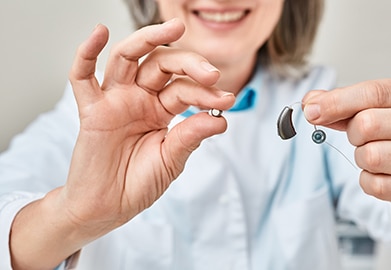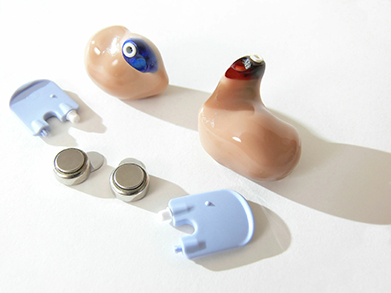Know About the Basics of Hearing Aid Batteries


The use of technology in the manufacturing of hearing aids has made them more of minicomputers. Like other computers and electronics, hearing aids need a constant power supply to keep them working. Here is where hearing aid batteries come in.
Hearing aid batteries are the heart of your hearing aids since, without them, even the best hearing aids are useless. Therefore, it is necessary to know all the basics to help you increase their overall performance and user experience.
Below is a detailed guide on the basics of hearing aid batteries. Read on to learn more.
Zinc-Air/Disposable Batteries
Zinc-air or disposable batteries are the traditional hearing aid batteries, although they are still in use. These batteries are made by oxidizing zinc with oxygen in the air. They last about 3 to 20 days based on the battery size, amount of use, degree of hearing loss, and the technology used in the hearing devices. These batteries sell for approximately $0.45 to $0.75 per cell.
Rechargeable Hearing Aid Batteries
Rechargeable hearing aid batteries are the opposite of disposable batteries in that you do not dispose of them after they are exhausted. Instead, you recharge them using a charging port provided by the manufacturer, and they are good to go after several charging hours.
These hearing aid batteries are designed with lithium-ion batteries, making them rechargeable. The battery lasts about 24 hours after full charging, although this varies based on the amount of use and technology or type of hearing aids. The rechargeable hearing aid batteries work like your smartphone that you often charge to keep it functioning.
Battery Sizes and Their Colour Codes
Hearing aid batteries come in four sizes and are differentiated by different colour codes. These are:
- Yellow- Size 10
- Blue- Size 675
- Orange- Size 13
- Brown- Size 312
Battery Life
The battery life of hearing aid batteries is a major consideration to ensure you get reliable hearing aids. Generally, hearing aid batteries life span varies based on the type of the batteries and usage of hearing aids.
Features of the hearing aid device, like Bluetooth connectivity, also affect how long a battery lasts. Ideally, rechargeable hearing aids last about 30 hours after fully charging. Additionally, these batteries will last for about 5 years before needing to replace them.
On the other hand, disposable zinc-air batteries have a lifespan of about 3 to 7 days. They can also live on your shelf for up to 3 years if stored in a dry environment and at room temperature.
Battery Safety
For battery safety, keep all types of batteries away from children and pets. These batteries, especially rechargeable batteries, often look like delicious candy. Therefore, ensure they are out of reach and out of sight to ensure safety.
Additionally, these are a few ways that you can optimize the life of your hearing aid batteries:
- Switch off the hearing aids when you are not using them
- Open battery compartments or completely remove the batteries from the compartment to allow moisture to dry off
- Ensure that your batteries are always at room temperature
- Clean your hands when handling batteries to avoid getting grease and dirt on them
- Keep the batteries away from metallic objects to avoid short circuits
Battery Disposal
When it is time to dispose of your rechargeable or zinc-air batteries, ensure you dispose of them properly. For instance, avoid disposing of the batteries in the trash as a hungry puppy may find and eat them, which is risky.
Additionally, if you dispose of them in the trash and they end up in landfills, they might leak toxic metal waste into the environment. The safest place to dispose of your batteries is at your local hearing aid centre.
Choose Bravo Hearing to Get the Best Hearing Aids and Accessories
You can find reliable hearing aids and hearing aid accessories at Bravo Hearing. Here, we have a team of experts who guide you through your hearing problems and ensure you get the perfect solution.
We also have ample hearing aid accessories at friendly prices and experts who guide you in using them. Get in touch with us today for more information about your hearing needs, or book a hearing test at our hearing clinic.
Also Read:


